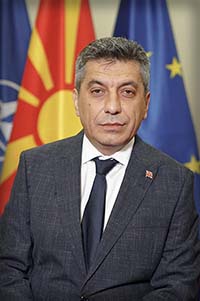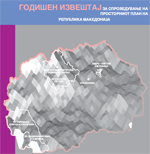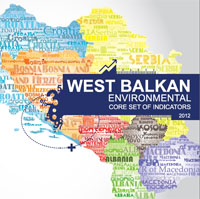 23rd Conference of the Parties to the United Nations Framework Convention on Climate Change (UNFCCC) opens on 6th of November, with the aim of launching nations towards the next level of ambition needed to tackle global warming and put the world on a safer and more prosperous development path.
23rd Conference of the Parties to the United Nations Framework Convention on Climate Change (UNFCCC) opens on 6th of November, with the aim of launching nations towards the next level of ambition needed to tackle global warming and put the world on a safer and more prosperous development path.
The Conference, coming just two years after the landmark adoption of the Paris Climate Change Agreement, will also further fuel momentum among cities, states, regions, territories, business and civil society in support of national climate action plans, the internationally-agreed temperature goal and the wider objectives of the 2030 Agenda for Sustainable Development.
The cornerstone of the Paris Agreement is that 195 countries agreed to work to stop global temperature rising by more than 2C above pre-industrial levels, and an ideal goal of keeping it below 1.5C.
It established specific actions and targets for reducing greenhouse gas emissions for each country that signed up to the agreement. It also included measures for financing mitigation and adaptation efforts in developing countries.
So far the governments of 169 countries have ratified the Paris Agreement, by drafting its specific measures for their nation – such as carbon emissions levels – into their own national laws.
Although the document agreed in Paris was extensive, it could not set out in full detail all of the ways in which governments would be expected to implement the agreement, and the process of checking how this is being achieved. Some of these technical issues could be relatively easily resolved, but others have a broader political import that will require delicate negotiation.
At COP23, negotiations are likely to focus on how countries go about implementing the Paris Agreement in practice, as well as addressing the difficult subject of US President Donald Trump’s decision to pull his country out of the agreement.
There is a need to move forward to fulfil the commitments that are due in 2020. In this regard, finance and mitigation pledges are essential. The United Nations says the world is on track for a temperature rise of about three degrees by 2100.As the World Meteorological Organization reported just a few days ago, 2017 will likely be one of the hottest three years on record.
Expectations from these negotiations to be the next essential step that ensures that the Paris Agreement’s structure is completed, its impacts are strengthened, and its goals achieved.
Many Parties stated that the guidance should assist or help Parties in implementingexisting provisions of the Paris Agreement. Some Parties referred to the need for the guidance to promote confidence and trust. There is, however, divergence on what this would mean in practice, which is further reflected in the context of each specific issue. General views on the purpose of the guidance,as shared by Parties, include:
•To assist Parties in preparing their NDCsor to facilitate the process of preparing NDCs by giving clear direction on commonalities;
•To assist Parties in implementing their existing legal obligations under the Paris Agreement;
•To operationalize the provisions of the Paris Agreement, in particular those relating to paragraphs 26, 28 and 31of decision 1/CP.21, andprovideconsistency, trust and confidence;
•To assist each Party indemonstrating that it is meeting the responsibility of fulfilling its obligations in respect of its NDC;
•To inform Parties’future NDCsand buildmutual confidence intheimplementation of commitments;
•Toclarify how the process of providing information and accounting for NDCs would work in practice;
•To support the effectiveness of the transparency, global stocktake and implementation and compliance processes under the Paris Agreement;
•To enhance the capacity to review progress in implementation and assess collective progress towards the long-term goals of the Paris Agreement
COP23 continues to give an opportunity to non-Party stakeholders: around ten thousand people are here to have conversations and look for solutions that apply to our practical lives.





































































